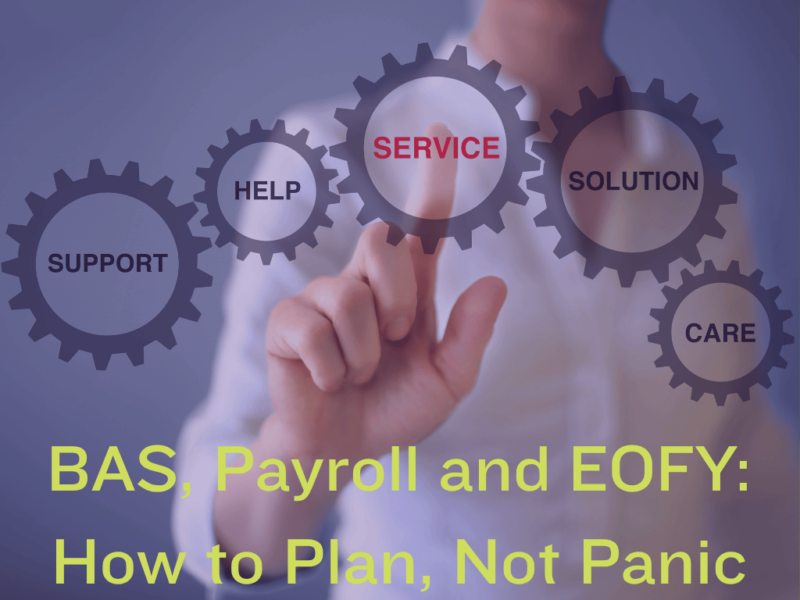Stop the Scramble: BAS, Payroll and EOFY – How to Plan, Not Panic

Deadlines shouldn’t feel like danger zones. Learn how Australian SMEs can prepare for BAS, payroll and EOFY with calm, clarity, and confidence, before the pressure hits.
2025 Budget vs Coalition Predecessors – A Small Business Perspective

2025 Budget vs Coalition Predecessors – A Small Business Perspective Australia’s 2025 Federal Budget arrives in a charged political atmosphere, with an election imminent and over two million sole traders and small business owners watching closely. This analysis cuts through partisanship to deliver an accountability-driven review of how the 2025 Budget compares to the previous […]
Generative AI Revolution: The New Era for Australian Small Businesses

Generative AI Revolution: The New Era for Australian Small Businesses Australian small businesses are on the cusp of a generative AI revolution. From plumbers using smart leak detection to aged care providers adopting AI assistants, generative AI and small business innovation are converging across Australia’s economy. We will explore how trades, manufacturing, health, education, hospitality, […]
Navigating Fair Work Compliance Amidst Rising Penalties and New Regulations – February FWC roundup

Navigating Fair Work Compliance Amidst Rising Penalties and New Regulations – February FWC roundup Small businesses are the backbone of the Australian economy, providing employment opportunities and driving innovation. However, recent actions by the Fair Work Ombudsman (FWO) highlight the growing risks for businesses that fail to comply with workplace laws. With increasing penalties for […]
US Trade Isolation: A Crisis or a Catalyst for Better Business?

What If Everyone Said No? Why a US Trade Boycott Could Strengthen Global Business and Quality Standards Trade disruptions can be unsettling, but they also create opportunities. If the world responded to US tariffs by excluding American trade and forming alternative alliances, the knee-jerk reaction would be fear of an economic downturn. However, history has […]
Trump series (6): The final word

The Final Word Can a Country Be Run Like a Business? The Trump Experiment The idea of running a country like a business is often presented as a means to improve efficiency and accountability within government. While corporate principles such as strategic planning, financial discipline, and performance measurement have their place in public administration, this […]
Trump series (5): Preparing for a Volatile Future

Preparing for a Volatile Future The return of Donald Trump to the White House presents a period of profound uncertainty across economic, political, and global security landscapes. His leadership style, which prioritises transactional decision-making, economic nationalism, and executive authority, will shape not only U.S. domestic policy but also international relations, financial markets, and social stability. […]
Trump series (4): The Social and Political Landscape: A Deepening Divide

The Social and Political Landscape: A Deepening Divide The Erosion of Democratic Norms Donald Trump’s second term signals a continuation of his leadership style that challenges the institutional frameworks underpinning American democracy. His previous tenure was marked by efforts to consolidate executive power, sideline traditional checks and balances, and question the legitimacy of electoral and […]
Trump series (3): The Diplomatic Tightrope: Global Alliances Under Pressure

The Diplomatic Tightrope: Global Alliances Under Pressure Unilateralism vs. Multilateralism Donald Trump’s second term departs from traditional diplomacy, reaffirming his commitment to unilateral action over multilateral cooperation. His first presidency demonstrated a deep scepticism towards international alliances, favouring bilateral deals where the United States could leverage its economic and military power to extract favourable terms. […]
Trump series (2): The Economic Gamble: Trump’s Policies and Global Trade

The Economic Gamble: Trump’s Policies and Global Trade U.S. Economy: A High-Risk, High-Reward Strategy Donald Trump’s economic vision for his second term is built on principles of protectionism, deregulation, corporate tax reductions, and prioritising domestic industries over global economic integration. While these policies are designed to stimulate immediate financial growth, historical precedents suggest they may […]
Trump’s Return: A Transactional Leader in a Complex World

Trump’s Return: A Transactional Leader in a Complex World Donald Trump’s second presidency marks the return of a leader who approaches governance through the lens of a business deal—where alliances, policies, and even legal constraints are negotiable if the proper leverage is applied. His transactional approach, defined by short-term victories, strategic unpredictability, and a disdain […]
Pricing Lessons Small Businesses Can’t Ignore

Pricing Lessons Small Businesses Can’t Ignore The Australian Competition and Consumer Commission (ACCC) has initiated court action against retail giants Woolworths and Coles for allegedly misleading consumers in a significant move that has caught the attention of businesses across Australia. The allegations focus on deceptive “discounted” prices that weren’t discounted at all. While this battle […]
